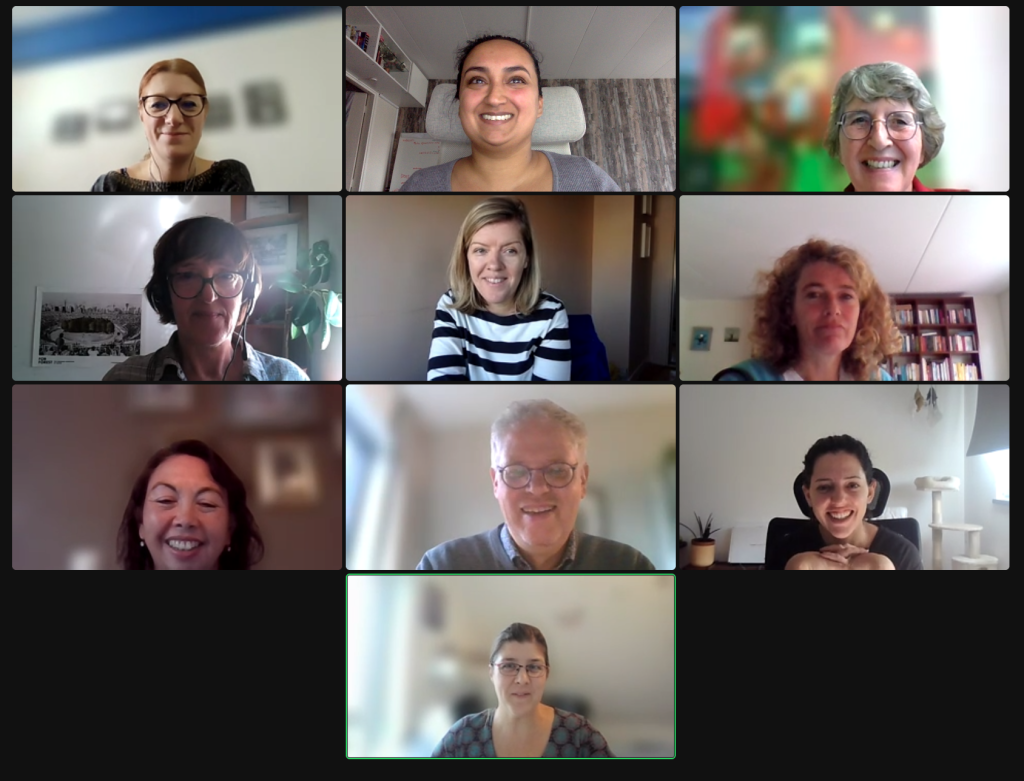AFEdemy organized a role playing exercise through ZOOM as part of the Virtual Cycle Exchange for the Culture on Prescription project.
On Thursday, the 12th of October, AFEdemy, Academy on age-friendly environments, had a role-playing exercise through ZOOM as part of the Virtual Cycle Exchange for the Culture on Prescription project. This activity was organized to promote dialogue and skills progress among Culture on Prescription course facilitators. At AFEdemy we believe that facilitators should have a training before they start with their courses. Role plays are a part of this training. Facilitators and stakeholders from different countries registered for this session. The role playing exercise was quite challenging but at the same time a very fun experience. There were two cases played out by the participants of the workshop, where there was a facilitator of an art workshop in both cases who needed to handle conflicts between the participants. Each case lasted around 10 minutes and we had a 10-minute evaluation after the case. Definitely worth repeating again!
The participants that did not have a role in the exercise were given the task to observe the players and the role playing and to give feedback on that after the role playing exercise. They also shared their thoughts on the role play and the facilitator shared similar experiences with the group and what they did in that situation.
The first case for the role playing exercise was about age discrimination and the second one was about a conflict within the group about the assignment. For the role playing exercise everyone was been given a certain role, in which they had to adapt to the situation and where they could improvise but stick as much to the described role as possible. This seemed to be quite a challenge because some participants were given roles that were contradictory to their own personality and they had to act like they were in a conflict with the other participants. Although some participants found it difficult to play certain roles, they had very much fun while doing it.
At the end the group agreed on the feedback that were given to the facilitators. It was clarified how facilitators can handle different cases, to prevent or resolve a conflict. We hope that the exchanges of the group will enhance cross-border communication and will help align project outcomes with target group needs.

